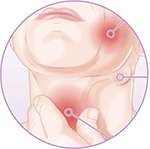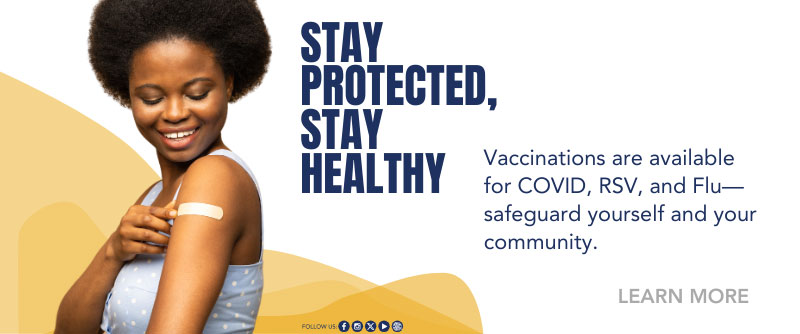Oral cancer kills about half the people who are diagnosed with it. Because oral cancers are usually not detected until they are advanced, the rate of death or severe damage is high. Yet oral cancer is highly treatable and survivable when detected early with a simple exam.
Oral cancers usually involve the tongue, lip, mouth, soft palate, tonsils, salivary glands, or back of the throat. About half of those diagnosed with oral cancer will not survive more than five years; those who do survive may be permanently disfigured. Fortunately, a dentist or hygienist can see or feel the pre-cancerous tissue changes which might lead to a cancer, and an exam takes only a few minutes.
Everyone over the age of 18 should have an oral cancer screening once a year. Five minutes could save your life.
Warning Signs and Symptoms
Signs of possible oral cancer include:
- A sore or irritation that doesn't go away
- Red or white patches in the mouth or on the tongue
- Pain, tenderness or numbness in the mouth or lips
- A lump, thickening, rough spot, crust or small eroded area
- Difficulty chewing, swallowing, speaking, or moving your jaw or tongue
- A change in the way your teeth fit together when you close your mouth
Self-Exam
Detecting the signs of possible oral cancer early is important. You can perform your own monthly check for oral cancer in just a few minutes at home. See your dentist or oral health professional if you notice anything unusual.
Risk Factors
Sun Exposure
Increasing sun exposure also increases your chance of developing lip cancer—the most common form of oral cancer.
Wear a wide-brimmed hat or use a sunscreen made for lips whenever you are in the sun for an extended period of time. Have a doctor examine any blisters that remain for more than a few days.
HPV Infection
Human Papillomavirus (HPV is the fastest growing cause of oral cancers in the U.S. It increasingly affects young, healthy, nonsmoking individuals.
Get a regular exam from your doctor or dentist that includes an oral cancer screening. Effective vaccination against HPV is also available.
Alcohol & Tobacco
Tobacco is the leading cause of oral cancers, but alcohol is a contributor as well, especially for heavy drinkers. Using alcohol and tobacco together increases the risk more than either one alone.
Drink moderately, and quit smoking to reduce your risk of oral cancer and other diseases. Free help is available for those who want to quit.
When detected early, the odds of surviving oral cancer are much better.
Early detection strongly affects your survival from oral cancer. Cancers can be detected early with a simple examination for changes in mouth tissue that your dentist can do, quickly and easily. If you are not already regularly screened for oral cancer on your dental visits, schedule a dental appointment each year for an oral cancer screening.
More Information
- Oral Cancer Fact Sheet AAOMS
- Oral Cancer Fact Sheet (Spanish) AAOMS


